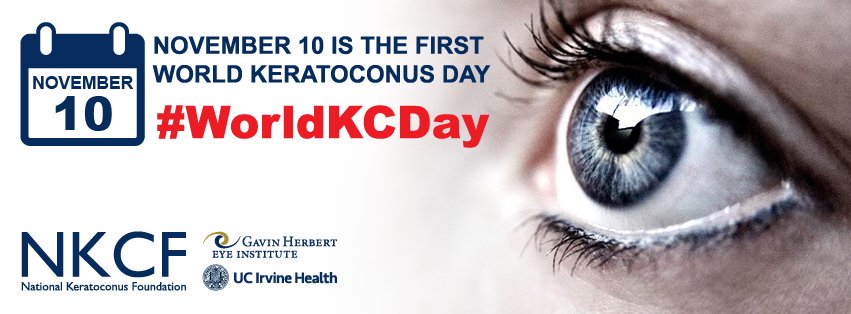
Keratoconus Patient shares his story pre and post crosslinking!
This story explains so much of what we hear every day from our keratoconus patients. What they have to give up every day, not being able to watch tv, drive at night, being misdiagnosed and not knowing what was wrong with them, being told they need corneal transplants and that they have no options. Read below to walk through this journey from our patient’s eyes and see how crosslinking can help!
I was devastated when I was diagnosed with keratoconus.
It affected my vision in a horrible way. The horrible effects of this condition included, not being able to drive at night, having difficulties reading books with small print, anything on my laptop was impossible to read. My performances at work began to be affected by my poor vision. It was definitely a scary diagnosis.
When I was originally diagnosed, the optometrist told me that keratoconus was only treatable by a corneal transplant and I would have to wait until my vision became distorted in order to get a transplant. Fortunately, I began researching the disease online, found information about the CXL treatment, and thankfully found Dr. Slade.
I found Dr. Slade and Baker Vision Center through their website and began to read about their many accomplishments.
Before the surgery, I had horrible vision and could not see without my eyeglasses. I stopped driving at night, gave up on hobbies that required the use of my eyesight, such as shooting on the range, and watching football on TV.
After the initial consultation with Dr. Baker and the staff, and extensive vision tests, I had all my questions answered. Dr. Baker took the time to sincerely listen to my concerns, answer my questions, and explain in-depth what the treatment was going to do to my vision and long term.
I left the consultation feeling relieved and optimistic and looking forward to the CXL treatment.
When I arrived for the CXL treatment, my parents who had offered to drive me after the operation accompanied me. The front office staff greeted us immediately and made us feel comfortable. I did not even sit down before I was called to the operating room where the procedure began.
Ironically, because of the kindness and comfort that the staff provided, I was not nervous during the operation. After about three hours, the procedure was complete.
After the procedure, Dr. Slade and Baker both examined my eyes and assured me that all looked well and gave me follow-up appointments.
To this day, Dr. Slade and his staff continues to offer unprecedented service for all my vision health needs. By constantly helping improve my vision, I am extremely grateful to Dr. Slade, Dr. Baker, and most especially Dr. Essa, who has recently helped me improve my vision more by transitioning me over to RGP contact lenses. I will forever trust my sight to the doctors and staff at Slade and Baker Vision Center.
What an incredible story to share with others who are contemplating Corneal Crosslinking. CXL has helped thousands of patients. We must remember that each outcome is different, just like with the outcomes of all types of surgery. The most important goal of Crosslinking (CXL) is to STOP the progression of Keratoconus, to keep it from getting worse.
As most of you reading this know, and as Abel shared here, the outcome that most keratoconus patients try to avoid is the need for a corneal transplant. As you can see, he was told this was his ONLY hope early on in his diagnosis. Thankfully we now have google and the world wide web! For all of you out there with this diagnosis, do not trust all that you hear. There is a lot of research out there so we urge you to get a second opinion, do research and call us!
Corneal specialists and ophthalmologists all over the world are working vigorously to keep their patients from needing this end result to keratoconus diagnoses. Luckily for some patients, there are visual results and there are also feelings of more comfort in their lenses pretty quickly. Help spread the word about this with your friends by sharing this!
If you or anyone you know has been diagnosed with Keratoconus, we are here to help!






